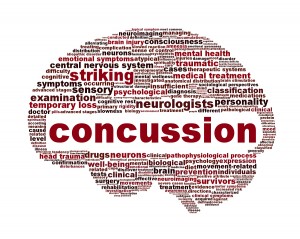 Traumatic brain injuries affect more than 1 million people a year, according to the Centers for Disease Control and Prevention. Although these injuries occur frequently, many people, from victims to friends and family, do not fully understand them. At TryMunity, we often hear the following brain injuries myths and misconceptions.
Traumatic brain injuries affect more than 1 million people a year, according to the Centers for Disease Control and Prevention. Although these injuries occur frequently, many people, from victims to friends and family, do not fully understand them. At TryMunity, we often hear the following brain injuries myths and misconceptions.
Concussions Are Not Worth Worrying About
Many people believe that a mild TBI, or concussion, cannot have lingering effects. Similarly, many believe that if consciousness is not lost, a head injury is not serious. However, according to the CDC, mild blows or bumps can cause mild TBIs, as can sudden impacts that jar the body. These injuries are termed “mild” because they are not potentially lethal. However, they can still have effects on cognitive ability, emotions and sleep patterns.
MRIs and CT Scans Always Reveal TBIs
Another of the most pervasive brain injuries myths is that symptoms manifest quickly and simple tests can confirm the injury. Research has shown that some injuries may be detected by MRIs but missed by CT scans, and vice versa; both tests may miss some injuries entirely. However, this does not mean the injuries have no impact. Even mild TBIs can cause issues with attention, reasoning, memory, and moods.
You Will Be “Back to Normal” Soon
There is no known treatment that reverses the effects of TBI, and although victims may overcome some changes through rehabilitation, other effects of the injury may be permanent. These may include:
- Emotional disorders or personality changes
- Difficulty with various cognitive functions
- Coordination and fine motor skills
- Sensory perceptions and spatial sense
No two brain injuries are identical, and neither are the outcomes for victims.
Moving Past the Myths
Overcoming common brain injuries myths to understand and live with TBI can be challenging, which is why TryMunity is dedicated to providing helpful, accurate TBI information. If you or any loved ones are dealing with a TBI, please join our online community to find support and advice from other survivors.



